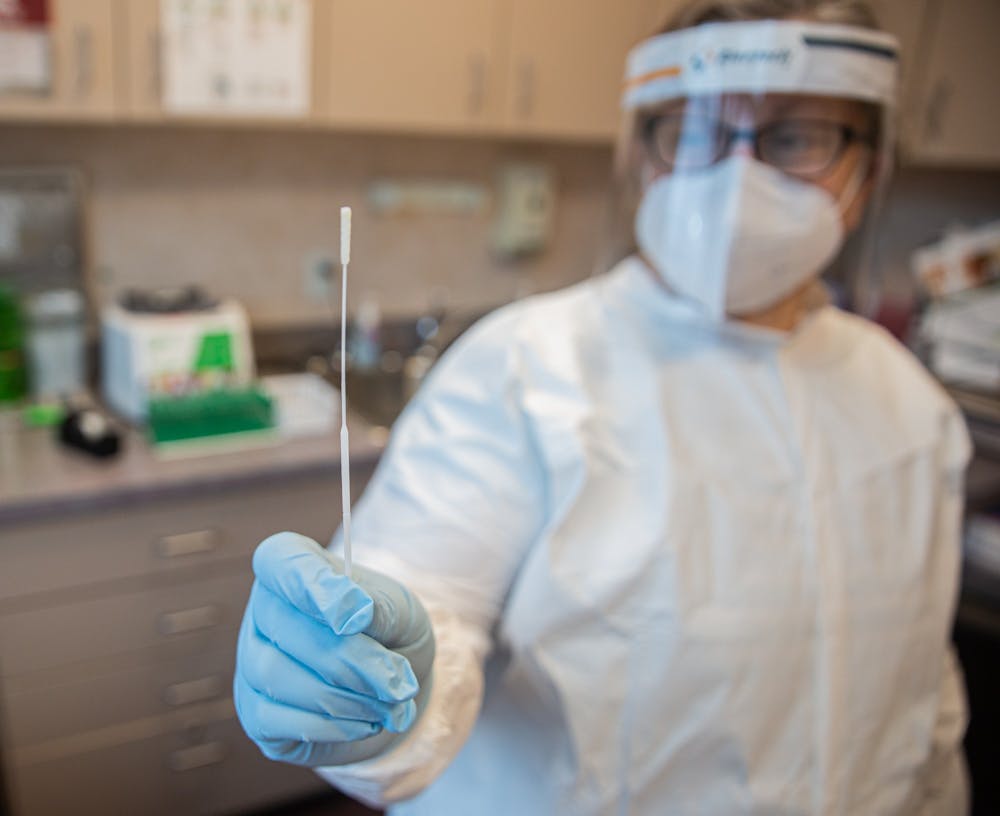In addition, professors have claimed they have received reports of students who are in such clusters that are not being reported by the University.
It’s an oversight of the Carolina Together Testing Program and involved administration to use the NCDHHS definition of a cluster, and to avoid reporting major locations of virus transmission. By doing so, it allows for several potential clusters on campus to go underreported to the general public.
The University must expand testing to more than a singular location and offer testing again at locations such as the CURRENT ArtSpace + Studio for students who live off campus and require parking. And while Campus Health does offer testing on Saturdays and Sundays, these testing centers must also extend their hours into the weekend — a time when students are increasingly social, are moving around campus and have the time to wait in potential lines.
According to UNC Media Relations, the Carolina Together Dashboard is updated manually daily, Monday through Friday, to include the previous day's information. In addition, Carolina Together will be updated with any clusters in residence halls and fraternity and sorority houses as well as new case counts each weekday, and a regular email will be sent summarizing the latest information from testing and clusters.
Although this is consistent with NCDHHS reporting, on a college campus, it is imperative that cases be reported more frequently to prevent accelerated transmission. By expanding testing centers and hours, the likely increase in data being collected would allow for the dashboard to be updated more frequently throughout the day, as well as on the weekends.
UNC must begin requiring testing for students and individuals who are already vaccinated. We have seen and know that breakthrough cases occur, and no vaccine is 100 percent effective.
It is likely that some of these clusters come from individuals who are vaccinated and were asymptomatic and spreading the virus unknowingly. In order to prevent this from occurring further, UNC must pressure vaccinated individuals to test at least weekly, especially if they are enrolled in courses that are held on campus.
UNC has lessons to learn from a school down the road. Duke University saw a spike in cases and immediately instituted sound risk calculation by allowing flexibility of classes to move online, indoor and outdoor mask mandates and suspending indoor dining. Duke began the semester requiring vaccinations for all students. Now, faculty and staff must submit vaccination records as a condition of employment, and limitations are being placed on student activities to limit further transmission.
To get the day's news and headlines in your inbox each morning, sign up for our email newsletters.
UNC should follow Duke’s footsteps and move to make some of the same changes in their campus policies to better protect what they call their “Carolina Family.”
Transparency is vital for keeping not only students safe from COVID-19, but instructors, administration and the relatives of these individuals (whom many are likely heading home to see over Labor Day weekend).
If changes aren’t made swiftly to UNC’s COVID-19 reporting and testing policies, we can all expect to head back to Zoom University for another semester.
@dthopinion
opinion@dailytarheel.com
CORRECTION: A previous version of this editorial incorrectly stated the frequency at which UNC updated COVID-19 case counts and cluster information. The dashboard is updated each weekday. The Daily Tar Heel apologizes for the information.



